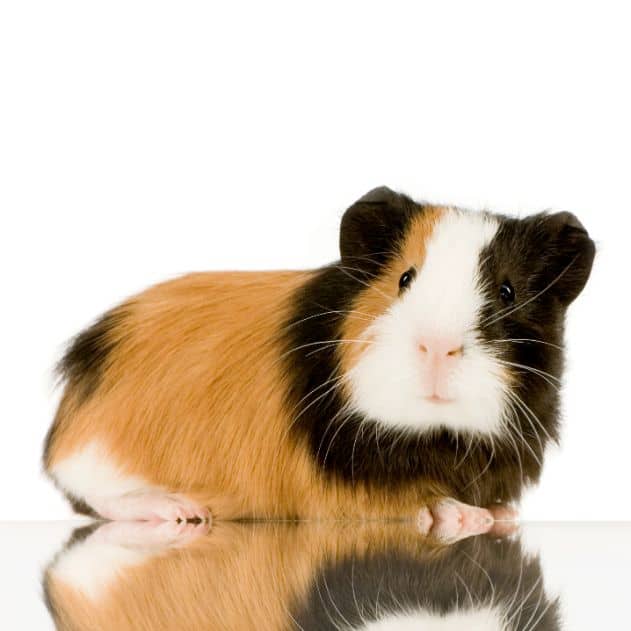Guinea pigs, also known as cavies, are a popular choice for pets due to their cute and cuddly appearance. When it comes to their behavior, one of the most interesting things about guinea pigs is their tendency to roll over.
While it may seem like a random and quirky behavior, there are actually several reasons why guinea pigs roll over. In this blog post, we will explore the various factors that contribute to guinea pigs’ rolling over behavior, as well as tips for training and caring for your guinea pig.

The Physiology of Rolling Over in Guinea Pigs
Understanding the Anatomy and Physical Abilities of Guinea Pigs
Guinea pigs are small rodents that have a unique anatomy that allows them to perform a variety of movements. They have a flexible spine that enables them to contort their bodies in ways that other animals cannot.
This flexibility allows guinea pigs to roll over easily, as they can bend and twist their bodies without discomfort or injury.
Exploring the Role of Instincts in Rolling Over
Rolling over is a natural instinct for guinea pigs, as it is a behavior that they exhibit in the wild. In the wild, guinea pigs roll over to avoid predators, as it makes them more difficult to catch. Rolling over also allows guinea pigs to groom themselves, as they can reach all parts of their bodies when they are on their backs.
The Behavioral Science behind Rolling Over in Guinea Pigs
Social interactions
Guinea pigs are social animals that thrive in groups. Rolling over can be a form of communication among guinea pigs, as it can signal submission or playfulness.
When a guinea pig rolls over, it may be indicating that it is willing to play or that it recognizes another guinea pig as the dominant member of the group.
Stress and Anxiety
Stress and anxiety can also play a role in guinea pigs’ rolling over behavior. If a guinea pig is feeling stressed or anxious, it may roll over as a way to soothe itself.
Rolling over can also be a sign of fear or discomfort, so it is important to observe your guinea pig’s behavior and body language to determine if it is feeling comfortable and safe.
How to Train Your Guinea Pig to Roll Over
Positive Reinforcement Techniques for Guinea Pig Training
Training your guinea pig to roll over can be a fun and rewarding activity for both you and your pet. Positive reinforcement techniques, such as using treats and verbal praise, can be effective in teaching your guinea pig new behaviors.
It is important to ensure that your guinea pig is comfortable and safe during training, and to never force it to perform a behavior that it is not comfortable with.
When training your guinea pig to roll over, it is important to take things slow and to be patient. Start by teaching your guinea pig basic commands, such as “roll over” and “stay,” and gradually build up to more complex behaviors.
Always provide plenty of positive reinforcement and ensure that your guinea pig is comfortable and safe during training.
When to Be Concerned About Your Guinea Pig Rolling Over
Signs of Health Issues That Could Affect Your Guinea Pig’s Rolling Over Behavior
While rolling over is a natural behavior for guinea pigs, it is important to be aware of any changes in your pet’s rolling over behavior. If your guinea pig suddenly stops rolling over or begins rolling over excessively, it may be a sign of an underlying health issue, such as respiratory or neurological problems.
Other signs of health issues may include lethargy, loss of appetite, or difficulty breathing.
Consulting with a Veterinarian if You Notice Changes in Your Guinea Pig’s Behavior
If you notice any changes in your guinea pig’s overall health, it is important to consult with a veterinarian as soon as possible.
A veterinarian can perform a thorough examination and help determine the underlying cause of your guinea pig’s behavior changes.
Early detection and treatment of health issues can greatly improve your guinea pig’s quality of life.
Conclusion
In conclusion, rolling over is a natural and fascinating behavior for guinea pigs that can be influenced by a variety of factors, including anatomy, instincts, social interactions, environment, and training.
By understanding these factors and providing a safe and stimulating home environment, you can encourage your guinea pig to exhibit its natural rolling over behavior.
Remember to always observe your guinea pig’s behavior and body language to ensure that it is comfortable and happy, and to consult with a veterinarian if you notice any changes in its behavior or health.
- How Long Do American Eskimo Dogs Live? Important Factors and Care Tips - September 29, 2023
- Do American Bulldogs Need Grooming? Essential Tips and Care Guidelines - September 29, 2023
- Do Bengal Cats Enjoy Playing? Essential Tips for Keeping Them Active - September 29, 2023